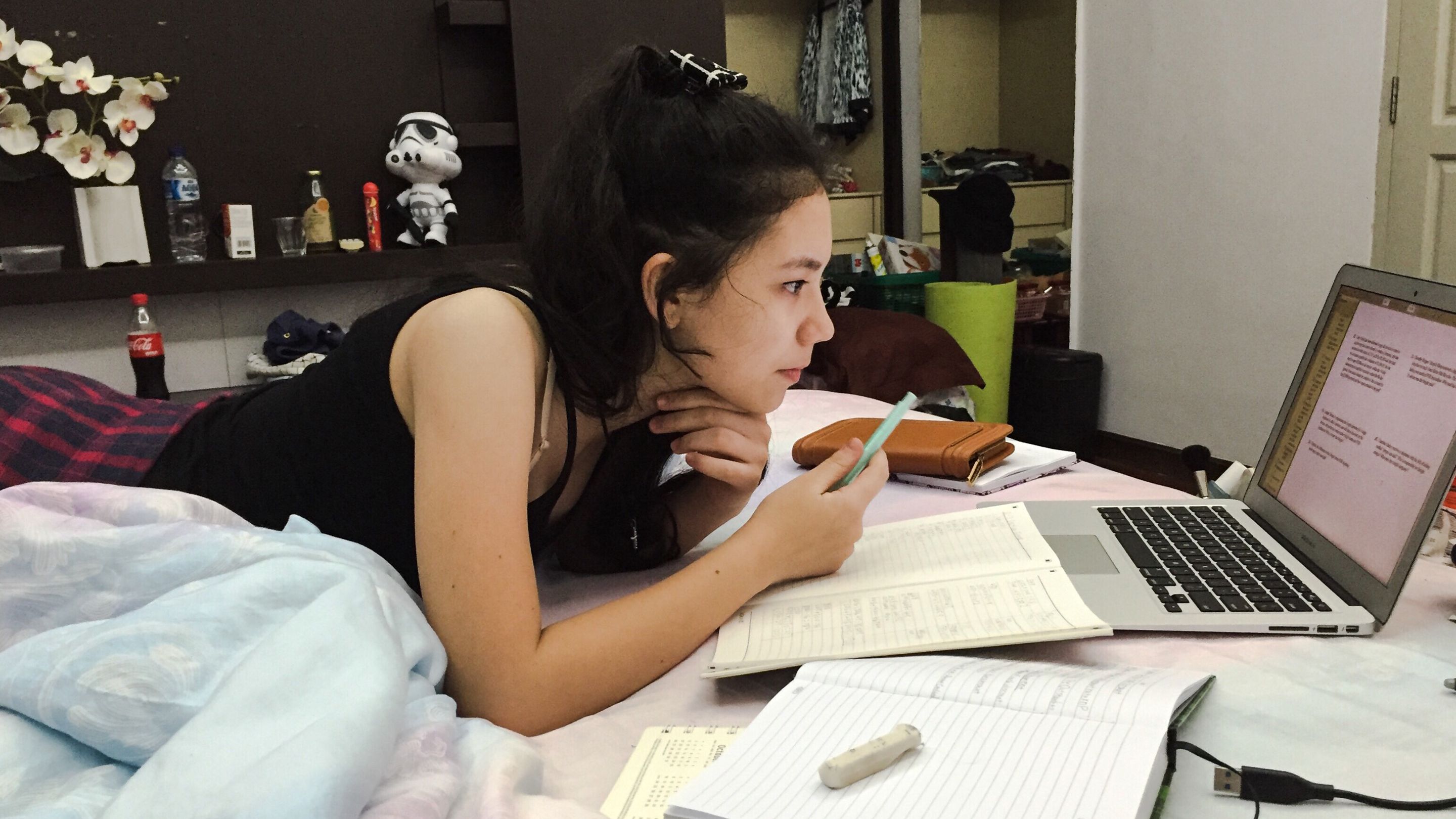Check out the tips and techniques to improve your concentration level while studying, If you’ve ever struggled to complete a tough assignment at work, study for a critical exam, or work on a time-consuming project, you may have wished you could improve your concentration.
Concentration is the mental effort you put out to focus on whatever you’re working on or studying right now. It’s sometimes mistaken with mental acuity, however, it is related to how long you can focus on something.

Factors that Affects concentration:
When it’s working properly, our capacity to focus and concentrate allows us to do extraordinary things. Distractions are the most common cause of losing attention, although they aren’t always as evident as you may think. Instead, you can feel confused or fuzzy or you might blame yourself for not being more in control.
1. Hunger
We’ve all experienced hunger as a source of distraction. Hunger has been shown in several studies to have harmful consequences for school-aged children and young people. Hunger is linked to low blood sugar, which leads to exhaustion and poor energy, and that leads to distraction
2. Lack of sleep
This is a significant one because if you don’t get enough sleep — even for just one night — your mental processes might slow down, you’ll yawn less than usual, and your concentration will suffer. You may get so puzzled that you are unable to do jobs that need complicated thinking. It’s also difficult to recall and learn new things when you’re tired, which has a detrimental impact on concentrate.
When you’re trying to focus but can’t, it’s simple to get frustrated. This might cause tension and irritability, making concentrating on what you need to achieve even more of a pipe dream.
Stay reading to learn about research-backed techniques for improving your attention
1. Don’t lead to extra pressure.
We understand that saying it is easier than doing it. However, the more stressed you are, the less you will be able to concentrate. And the less you can concentrate, the more difficult it will be to remember knowledge and do activities.
Stress, according to research, hinders your problem-solving abilities and causes you to make poor decisions. If you can be disciplined, the solution is simple:
- Restrict your use of social media,
- Walk outside to the balcony or at the very least the window sill to get some fresh air when you take brief pauses between studying or working and get up to stretch your legs.
2. Every 30 minutes, take a little rest.
According to research, our minds focus best in short intervals. So, after every 30 minutes of heavy focus, take two-three minute breaks. Do anything that doesn’t occupy your attention during this time: go for a small walk, listen to brief music, or have a quick discussion with a colleague you like.
Things like browsing through social media aren’t advised since you don’t want to lose track of time or become too preoccupied with something else at this time. Short three-minute breaks in every 30 minutes or so can assist you in re-energize when you return to work. If you spend a lot of time on the computer, it will also help you avoid digital eye strain and muscular stiffness.
3. Carefully consider your workplace

It’s quite simple to fall into a pattern of sitting in bed to work if you have a home office or are preparing for exams at home. Not only does this damage your posture, which can eventually lead to neck, shoulder, and back discomfort, but it also affects your attention. The bed is related to a place to sleep in your brain.
When you try to work while lying in bed, you end up confusing your brain by asking it to sleep and concentrate at the same time. The simplest approach to avoid this is to follow the rule of working at your allocated workplace – preferably at a table and in an upright chair.
4. Get a sleep of seven to eight hours.
When we sleep, our brain retains critical knowledge; if we don’t get enough sleep, we won’t be able to remember the information
A good sleep pattern allows your body clock to identify and balance time slots for work and relaxation, allowing you to be more focused at work. This also guarantees that your body has adequate rest and is refreshed for when you need to perform at your peak.
5. Distracting websites and apps should be blocked on your phone, tablet, and PC.
Distracting websites and applications, if you’re like most of us, can kill any effective, concentrated studying session. You sit down to study and are interrupted by a notification or a headline that draws your attention.
Distractions like these, which appear to be little at first, rapidly steal minutes and eventually hours. It takes an average of half an hour to refocus on your work after being interrupted.
6. Stick to a schedule
Make a study regimen for yourself and stick to it. This helps you to make studying time a habit, increasing your chances of sticking to your study schedule. Throughout the day, keep an eye on your energy levels. Do you feel more energized (and hence better able to focus) during the day than at night? It could be beneficial to study your most difficult courses while you have the greatest energy.
Once you’ve figured out when the time of day you’re most energetic, you may schedule your studies around that time to improve your ability to focus and concentrate on your job.
7. Find a study buddy.
Reviewing material with someone else can help you break up the monotony of studying, clarify concepts by bouncing ideas off of someone else, and see things from a fresh viewpoint. This person can assist you in staying on track with your academics and focusing on the subject at hand.
Study partners can be distracting for some people. When looking for a study partner, look for someone who is responsible and focused, perhaps even more so than you are in class. That way, you’re constantly pushing yourself to keep up with them.
Notecards are being made: Making notecards and flashcards for vocabulary or academic terms and reviewing them frequently might aid in the memorization of words, topics, and concepts.
Drawing: Some studying necessitates a re-examination of structures and schematics. By copying and creating those patterns and structures yourself, you may develop and picture what you’re attempting to learn, making it more remembered.
Making a rough outline. Making an outline may aid in the mapping out of larger concepts, as well as the little details. It can also assist in the creation of visual divisions and groups of material, which can aid in the recall of knowledge when test time arrives.
8. Make the study area as clear as possible.
To minimize tension and improve attention, clear away stuff you don’t need to study and keep your area orderly. Any materials in your near area that do not immediately add to your attention function merely as lead to distraction.
Food containers, paper rubbish, and other miscellaneous materials are among the items to be discarded.
9. Play some songs

While working or studying, listening to music might help you concentrate.
According to a study, employing natural sounds or white noise to mask background sounds can aid increase focus and other brain processes, even if you don’t like listening to music while you work. The music you listen to has an impact on your mood like classical music,
If classical music isn’t your thing, consider ambient or electronic music without lyrics. To avoid being distracted, keep the music low or at a background noise level.
10. Recognize your most effective learning style
It’s crucial to understand that there are many various learning styles and that each individual retains knowledge in a different way.
- When pictures, visuals, and situational reasoning are used, visual learners learn best.
- Music, sound, or both are preferred by auditory learners.
- Learners who are logical must employ reasoning, logic, and systems.
- In writing and speaking, verbal learners will prefer to use words.
- Social learners will benefit from learning in groups or with others.
- Isolated learners learn best when they are alone.
Finally,
Some methods for improving focus may work well for you, while others may not. Consider trying a variety of ways to find what works best.
Furthermore, these suggestions are unlikely to impair attention or cause any harm, so giving them a go shouldn’t be harmful.
You will be able to do more and concentrate on the things in life that actually offer you success, joy, and happiness if you improve your mental focus 🙂

